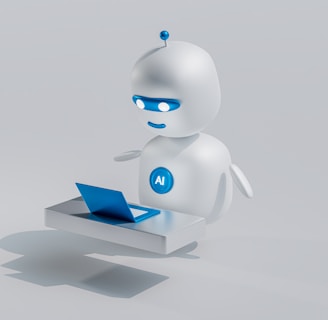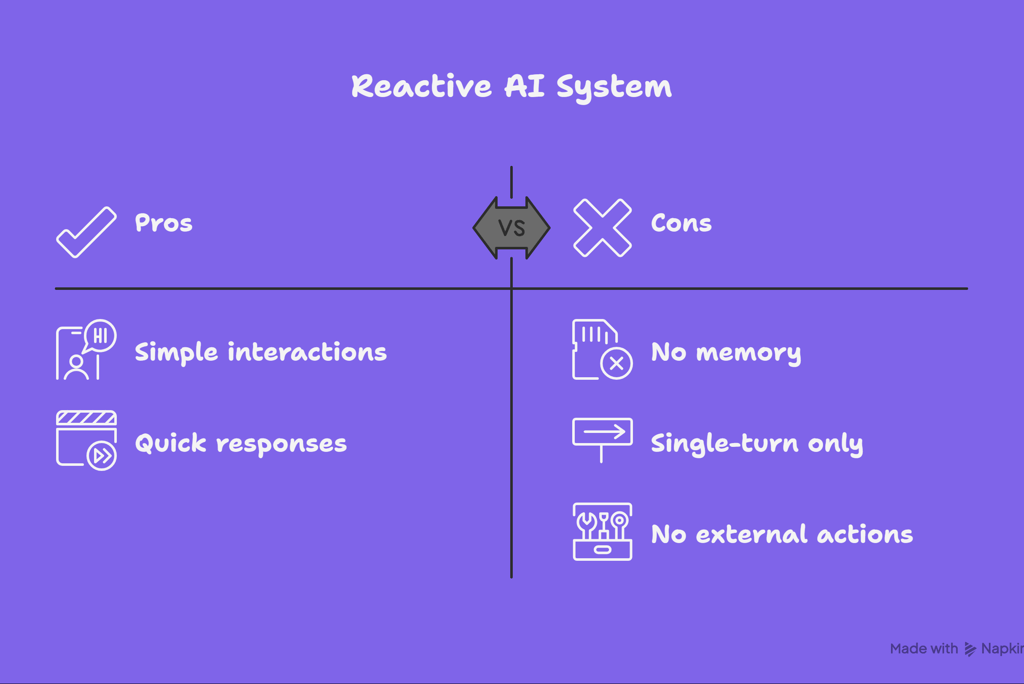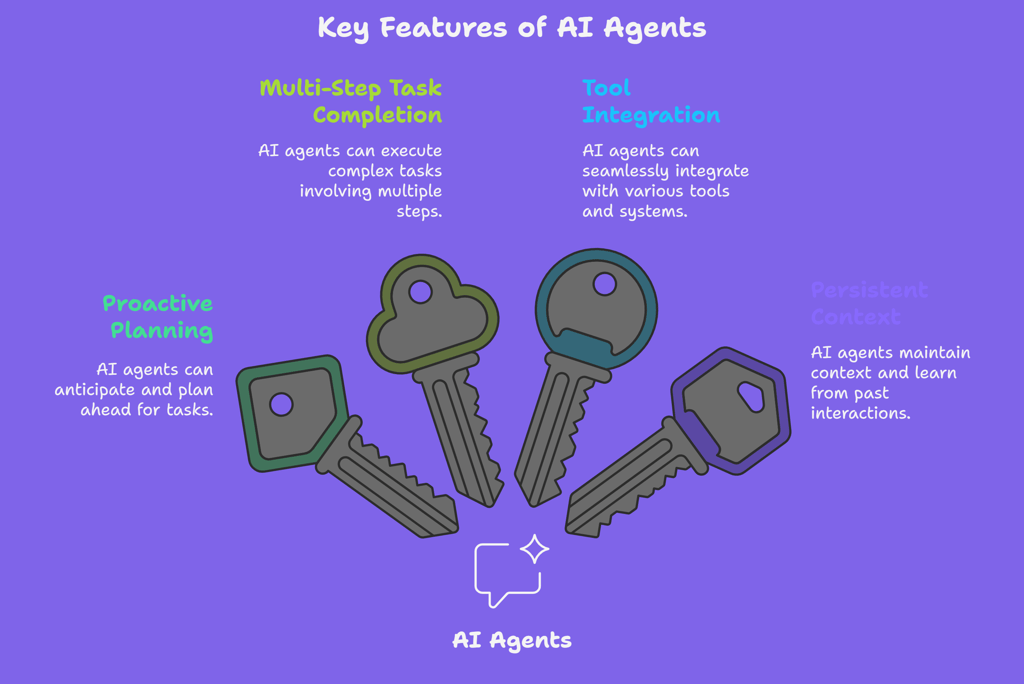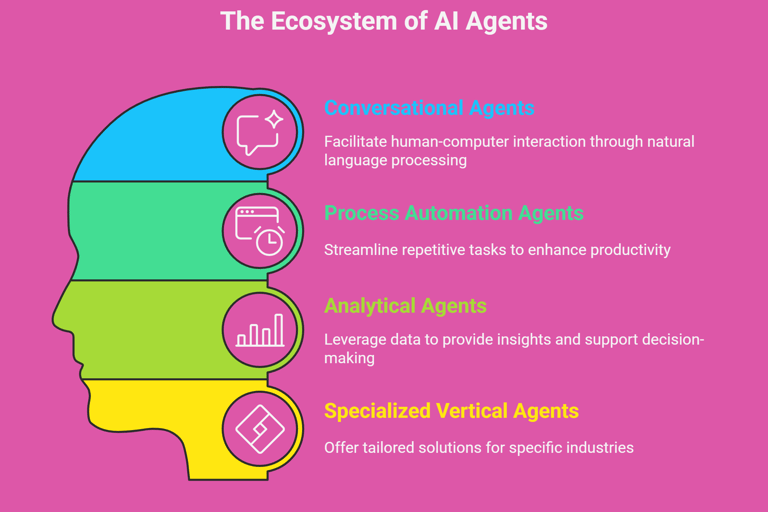limited period offer - Subscribe to our newsletter and get $198 free bonus .
Understanding AI Agents: Key Insights & FAQs
SOFTWAREBUSINESS & PRODUCTIVITYSAASLEARNINGARTIFICIAL INTELLIGENCE
8/21/20254 min read


What Is an AI Agent? (The 2025 Definition)
An AI agent is a goal-directed system built around a capable language model and equipped with tools to perceive, plan, act, and learn autonomously. Unlike traditional chatbots that simply respond to prompts, AI agents can :
Perceive their environment through text, images, code, and data
Plan multi-step workflows to achieve specific goals
Use tools and APIs to interact with external systems
Maintain memory across interactions and tasks
Learn and adapt from feedback and experience
For a comprehensive overview, check IBM's detailed guide on AI agents
How Do AI Agents Differ from Traditional AI Tools?
The key distinction lies in autonomy and action capability:
Traditional AI (Like ChatGPT)
· Reactive responses only
· Single-turn interactions
· No persistent memory
· Cannot take external actions


AI Agents -
Proactive planning and execution Multi-step task completion.
Tool integration with APIs and systems .
Persistent context and learning digital workforce.


Learn more about the differences at Dev.to's comprehensive comparison.dev
What Can AI Agents Do Reliably in 2025?
Current AI agents excel at narrow, well-instrumented workflows:
· Customer service automation with personalized responses
· Data processing and analysis across multiple systems
· Software development tasks like code review and testing
· Business process automation in finance, HR, and operations
· Content creation and management workflows
.Lead qualification and sales support
Why Is 2025 Called "The Year of AI Agents"?
Several factors are driving massive adoption:
1. Advanced Model Capabilities: Better reasoning, longer context windows, and improved function calling
2. Enterprise Demand: 99% of developers are exploring AI agent development
3. Proven ROI: Companies report significant productivity gains and cost savings Regulatory Clarity: Clearer frameworks for AI governance are emerging (Source - ampcome)
Read more about 2025 AI trends at Microsoft's official insights.news.microsoft
What Are the Main Types of AI Agents?


How Do You Build an AI Agent?
(7-Step Process)
Step 1: Define Purpose and Goals
identifying specific problems to solve, setting clear objectives and success metrics, and determining the required level of autonomy.
collecting historical data and examples, cleaning and structuring information, and creating training datasets.
involves selecting appropriate AI models, development frameworks, and planning integration points.
Step 2: Gather and Prepare Data
Step 3: Architecture and Tools
mapping out decision trees, planning tool and API integrations, and designing user interactions.
Step 4 :Design the Workflow
Step 6: Test and Iterate
Step 5: Develop and Train
through simulated scenarios, gathering user feedback, and refining performance.
the agent by building its core functionality, training it on prepared datasets, and implementing tool connections.
the agent by launching it into production, monitoring performance metrics, and continuously improving it.
Step 7: Deploy and Monitor
For a detailed beginner's guide, visit Codewave's step-by-step tutorial.codewave
What Are the Key Security and Privacy Concerns?
Critical considerations include:
Data protection and encryption requirements
Access control and permission management
Audit trails for decision-making transparency
Compliance with industry regulations
Human oversight for critical decisions
Should Companies Build or Buy AI Agents?
Most businesses should buy or partner rather than build from scratch
Build Internal Agents When:
· You have extensive AI expertise
· Unique, highly specialized requirements
· Long-term strategic AI investment
Buy/Partner When:
· Limited internal AI expertise
· Standard business use cases
· Need rapid deployment
· Want ongoing support and updates
For implementation guidance, check Kanerika's deployment strategies.kanerika
What Are the Most Common Failure Modes?
Key challenges to watch for:
1. Over-complexity: Too many agents create confusion
2. Poor tool integration: Inadequate API connections
3. Insufficient training data: Poor performance on edge cases
4. Lack of human oversight: Critical errors without supervision
5. Security vulnerabilities: Inadequate access controls
How Do You Measure AI Agent Success?
Essential metrics include:
· Task completion rate and accuracy
· Time savings compared to manual processes
· Error reduction and quality improvements
· User satisfaction and adoption rates
· ROI and cost savings
Read about evaluation frameworks at Skim AI's use case exploration guide.skimai
What Regulations Apply to AI Agents in 2025?
Emerging frameworks focus on:
· Transparency in decision-making processes
· Accountability for autonomous actions
· Data privacy and protection requirements
· Industry-specific compliance (healthcare, finance, etc.)
· Audit requirements for critical systems
Stay updated on regulatory developments at Digital Workforce's analysis.digitalworkforce
What's the Future of AI Agents?
Expect continued evolution toward:
· Enhanced reasoning and problem-solving capabilities
· Multi-agent collaboration for complex workflows
· Voice-first interactions for natural communication
· Industry specialization with vertical-specific solutions
· Proactive intelligence that anticipates
Explore future trends at Ampcome's 2025 usage guide.ampcome
Getting Started: Best Practices for 2025
For Beginners:
1. Start small with well-defined use cases
2. Focus on high-impact repetitive tasks
3. Use no-code platforms for initial experiments
4. Invest in data quality and preparation
5. Plan for human oversight and feedback loops
For Enterprises:
1. Develop clear AI strategy and governance
2. Invest in talent and training
3. Start with pilot projects before scaling
4. Ensure robust security and compliance
5. Build feedback mechanisms for continuous improvement
For comprehensive FAQs, visit PowerShifter's complete guide.powershifter
Conclusion: The AI Agent Revolution Is Here
With 2025 marking the mainstream adoption of AI agents, businesses that act now will gain significant competitive advantages. The technology has matured from experimental to essential, offering proven ROI and transformative capabilities across industries.
The key to success lies in strategic implementation—starting with clear use cases, ensuring proper oversight, and scaling thoughtfully as the technology continues to evolve.
Ready to explore AI agents for your business? Stay informed with the latest insights and comprehensive reviews at RealReviewsInc.in—your trusted guide to navigating the AI revolution.
Real Reviews Inc,
Empowering informed decisions through honest insights.
© 2025 Real Reviews Inc. All rights reserved

